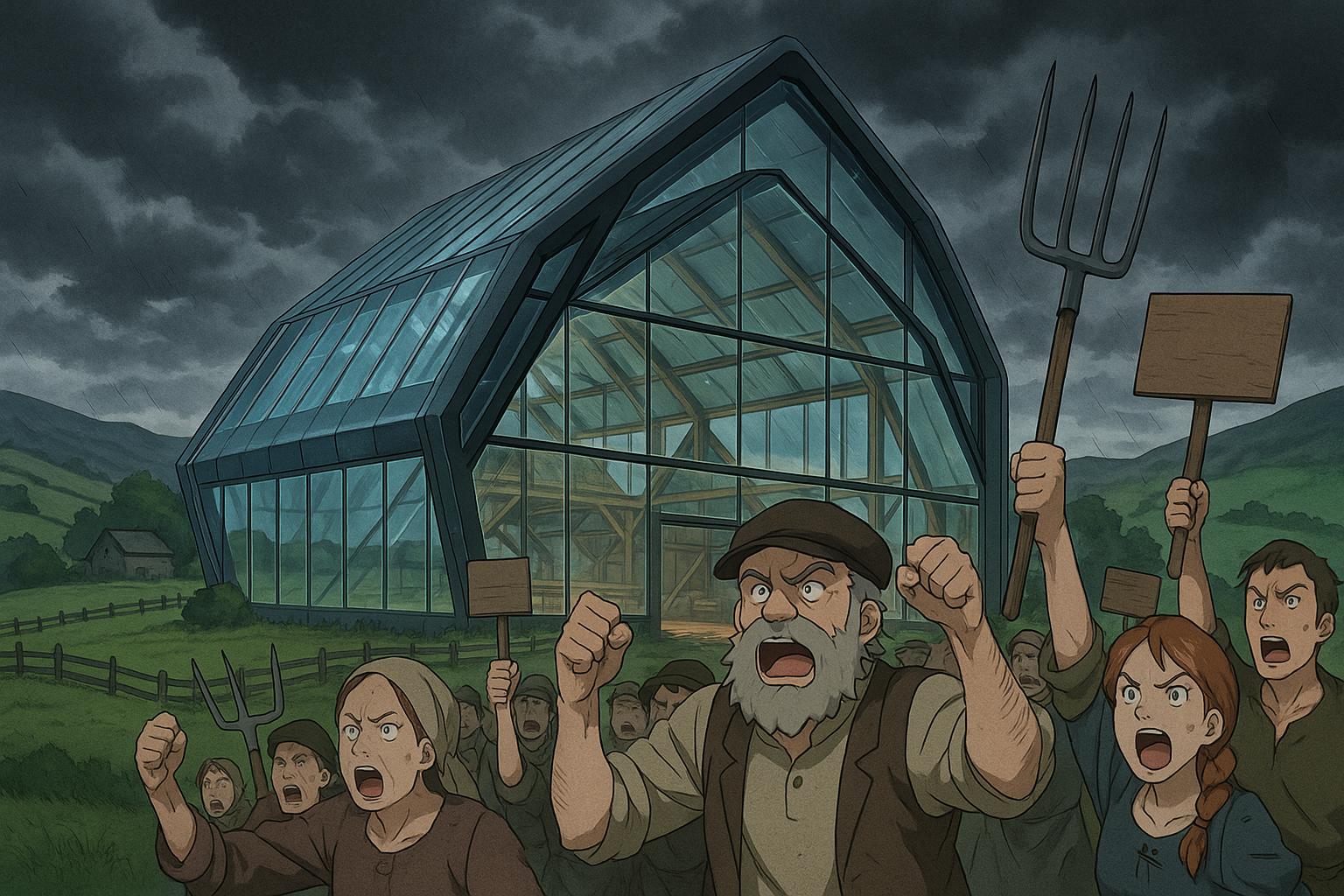The owner of a luxurious barn conversion in Penisarwaun, Gwynedd, has ignited a fierce controversy within his community after transforming the property into a holiday let that commands £500 per night. The extensive renovations, which feature a striking 18-foot glass window, have led locals to liken the structure to an “alien ocean liner,” inciting complaints about rowdy guests, loud music, and the use of a hot tub where visitors frequently revel in the nude.
Karl Jones, a property developer, has been left furious by the backlash from residents who feel that the influx of guests is disruptively altering their tranquil rural lifestyle. Describing the situation as profoundly disheartening, Jones asserts that he merely sought to improve his family's future in the midst of financial challenges exacerbated by the pandemic. “As someone born, raised, and still proudly residing in Wales, my intention has always been to celebrate the beauty of this area," he expressed.
The complaints have escalated to alarming levels, with allegations of vandalism against the property—including instances of mud being thrown over the garden hedges and guests being verbally harassed. One local resident, Michael Sharp, remarked on the adverse effects of the hot tub, stating that it seems to "provoke bad behaviour," while Janet Gayther, another villager, lamented the loss of privacy as guests frequently parade in the nude.
The situation has prompted Gwynedd Council to intervene, issuing a planning enforcement notice in April demanding that the property cease its operations as a short-term holiday let. This notice requires the building to revert to its previous use associated with the home, Plas Coch, and requests the removal of the contentious windows. The council has not received any appeals regarding the enforcement, indicating a serious resolve to restore local order.
This incident is reflective of broader trends in the region, especially as Gwynedd Council has recently implemented stricter planning regulations aimed at curbing the rapid increase of holiday homes, which many locals feel is exacerbating housing shortages and altering the character of their communities. The council introduced an Article 4 Direction effective from September 1, 2024, mandating that property owners seeking to convert residences into second homes or short-term lets acquire planning permission. The initiative stems from substantial protests and public discourse on preserving the integrity of local neighbourhoods.
As the tensions mount, Jones has maintained that his development was carried out in good faith, believing he had followed the proper planning procedures, with council officials signing off on the renovations at various stages. Nevertheless, the ire of the community has underscored a significant rift between the aspirations of property developers and the preservation of rural ways of life, leading many to call for re-evaluations of planning permissions for similar projects in the future.
Given the current raucous atmosphere, this story highlights critical conversations about the balance between personal enterprise and community cohesion in an era where tourism frequently intersects with local identity. Residents' concerns about noise, privacy, and general disruption bring to light the ongoing struggles that many rural communities face when confronted with rapidly changing landscapes driven by the holiday rental market.
Source: Noah Wire Services
